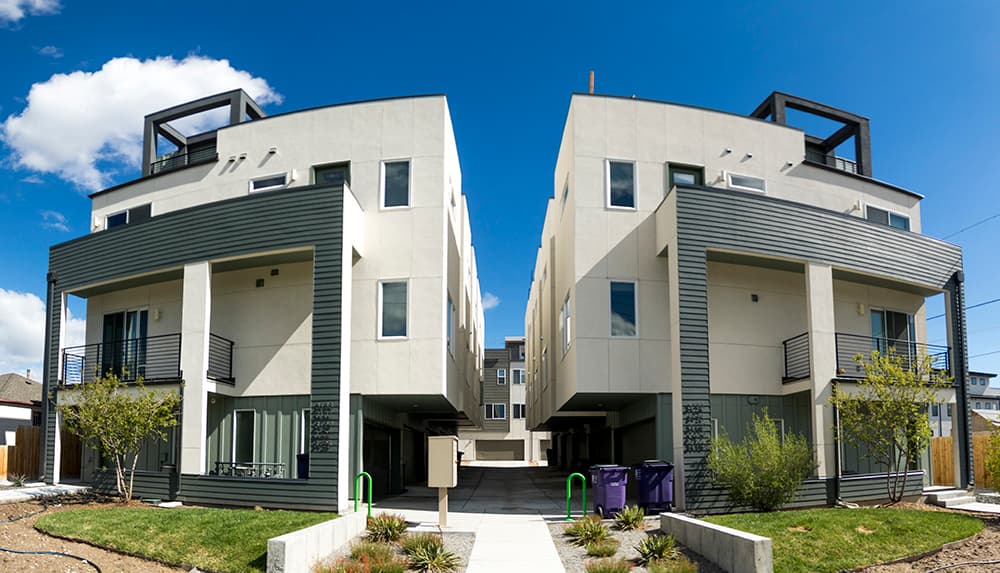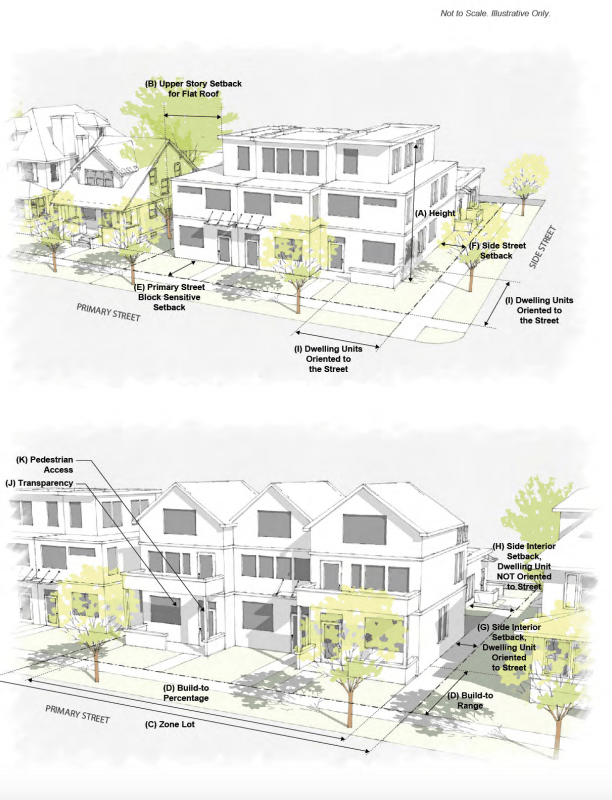
Slot 'em if you got 'em. Denver officials may try to kill the notorious slot home — an example of which is pictured above — sooner than expected.
City staff and a committee have been working for more than a year on a proposal that would keep developers from building slot homes, the widely criticized architectural style that fits more units on less land.
A slot home is a multi-unit residential project that is designed around a narrow driveway or open space, aka “the slot.” While most residences face toward the street, slot homes turn inward, often presenting bare walls to their neighbors.
To make it really simple: Houses aren’t “supposed” to be sideways. But it’s happening in Denver because it’s a way to increase the marketable space you can build on a property while still selling units separately and avoiding potential construction-defect litigation.
Now, the city has developed a set of rules to prevent the construction of new slot homes. They're on track to implement that new law in May -- but that's not fast enough for some.
Council members Wayne New and Rafael Espinoza want the city to shut the door on slot homes nearly two months earlier. Under a new proposal, Denver would stop accepting developers' design applications for slot homes at 4:30 p.m. on March 14.
"It effectively ends the use of the slot home form in its most egregious way sooner rather than later, which in the public’s view can’t happen soon enough and should have happened years ago, to be quite honest," Espinoza said.
The city's Slot Home Task Force voted unanimously in support of the change. Even the developers on the committee agreed, likely because they feared that the city council could take a harsher action instead.
The Denver City Council still has to approve the new moratorium.
Why it matters:
Slot homes became popular because they're a way to fit the maximum amount of building space onto a given piece of land. If developers can't build sideways "slot" units, they might have to shrink a typical complex from 12 residences to 11 residences.
“It will create a better product, but I do think that real-estate wise, there’s going to be a couple hundred land sellers that are going to be very unhappy with this,” said Ty Mumford, a developer who also is on the slot home task force, in an earlier interview.
Some also have questioned whether the changes will hurt the housing supply by reducing the number of units that are built.
Espinoza argues that this is not the case. Slot homes are just a way to maximize profits for certain residences -- townhomes and row-homes, he said. The zoning code will still allow developers to build larger, denser buildings in the form of condos and apartments.
An earlier kill date may prevent some slot homes from being built, and it also may cost developers and land sellers some potential revenue. However, we could see new slot homes for years to come -- developers have the option to hold onto already-approved plans and build them later.
What will be built instead?
Well, city planners are hoping that the changes to the zoning code will force developers to orient units toward the street. Here's an example of how it might look in certain districts.
Updated with additional context on the reasons slot homes are built.












